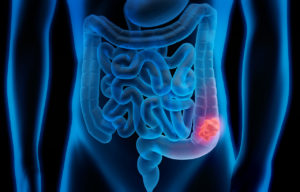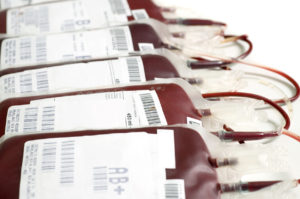
New Hope in Transplants for Those Living with HIV and Hepatitis C
Groundbreaking developments in HIV treatments have slowly begun to transition the disease into a chronic condition. Thankfully, patients are able to live long and full

Groundbreaking developments in HIV treatments have slowly begun to transition the disease into a chronic condition. Thankfully, patients are able to live long and full

Colorectal cancer screening (CRC) programs around the world have been disrupted by the COVID-19 pandemic. To explore the impact of disruptions to cancer screening of

Red blood cell transfusions are common in patients who undergo surgery for gastrointestinal (GI) cancer. These patients are at high risk for requiring transfusions because

DDW Council Chair, Loren Laine, MD, looks back on this year’s annual meeting and highlights some of the most interesting research presented at the meeting.

With the increased availability of safe and effective treatments for patients with hepatitis C (HCV), Brian L. Pearlman, MD, FACP, FAASLD, AAHIVS, identified five HCV patient populations clinicians should understand how to treat.

Prateek Sharama, MD, provided a checklist for clinicians and organizations as endoscopic services resume post COVID-19 to ensure safe and efficient operation.

Kenneth Wang, MD, reviewed recent innovations in cryotherapy and tissue resection that are improving outcomes for patients with Barrett’s esophagus, especially those who have failed standard therapy.

Joseph C. Anderson, MD, FACG, MHCDS, provided a review of the best time to start and stop screening for colorectal cancer (CRC) to detect the cancer early and to prevent unnecessary screening.

Jacob E. Kurlander, MD, MS, of the Veterans Affairs (VA) Center for Clinical Management Research and Michigan Medicine shared data on the largest PPI deprescribing intervention in Veterans, showing that these programs help reduce PPI prescribing, without increasing adverse events.

Nancy Reau, MD, explored COVID-19-related liver disease in severe and long-term COVID-19 infections.
This website uses cookies so that we can provide you with the best user experience possible. Cookie information is stored in your browser and performs functions such as recognising you when you return to our website and helping our team to understand which sections of the website you find most interesting and useful.
Strictly Necessary Cookie should be enabled at all times so that we can save your preferences for cookie settings.
If you disable this cookie, we will not be able to save your preferences. This means that every time you visit this website you will need to enable or disable cookies again.